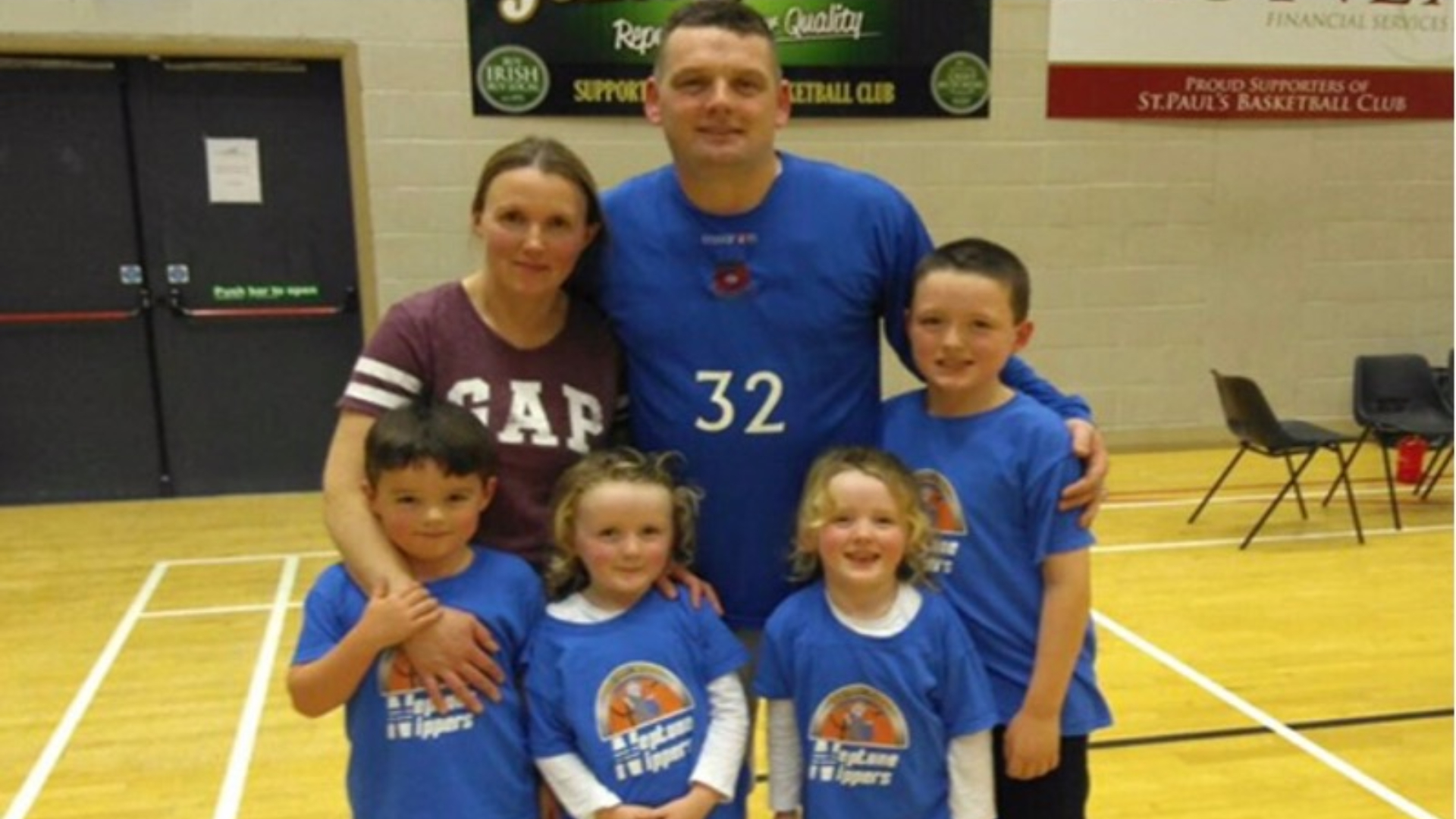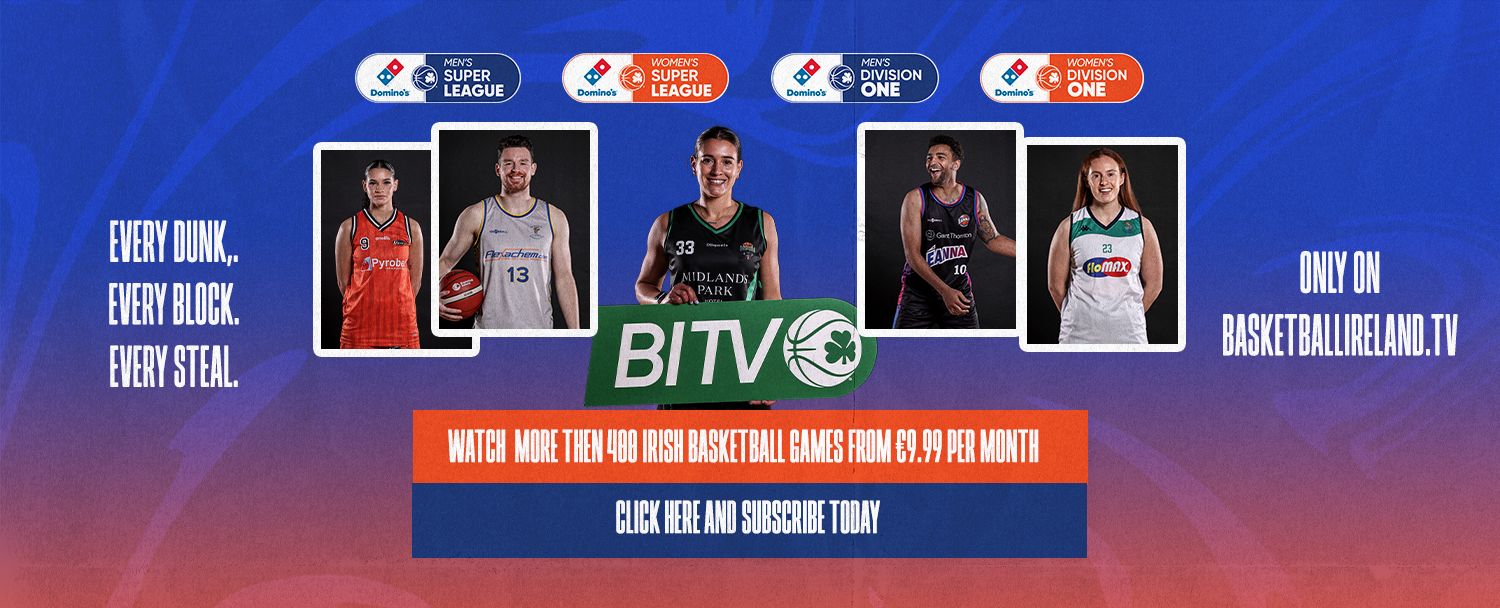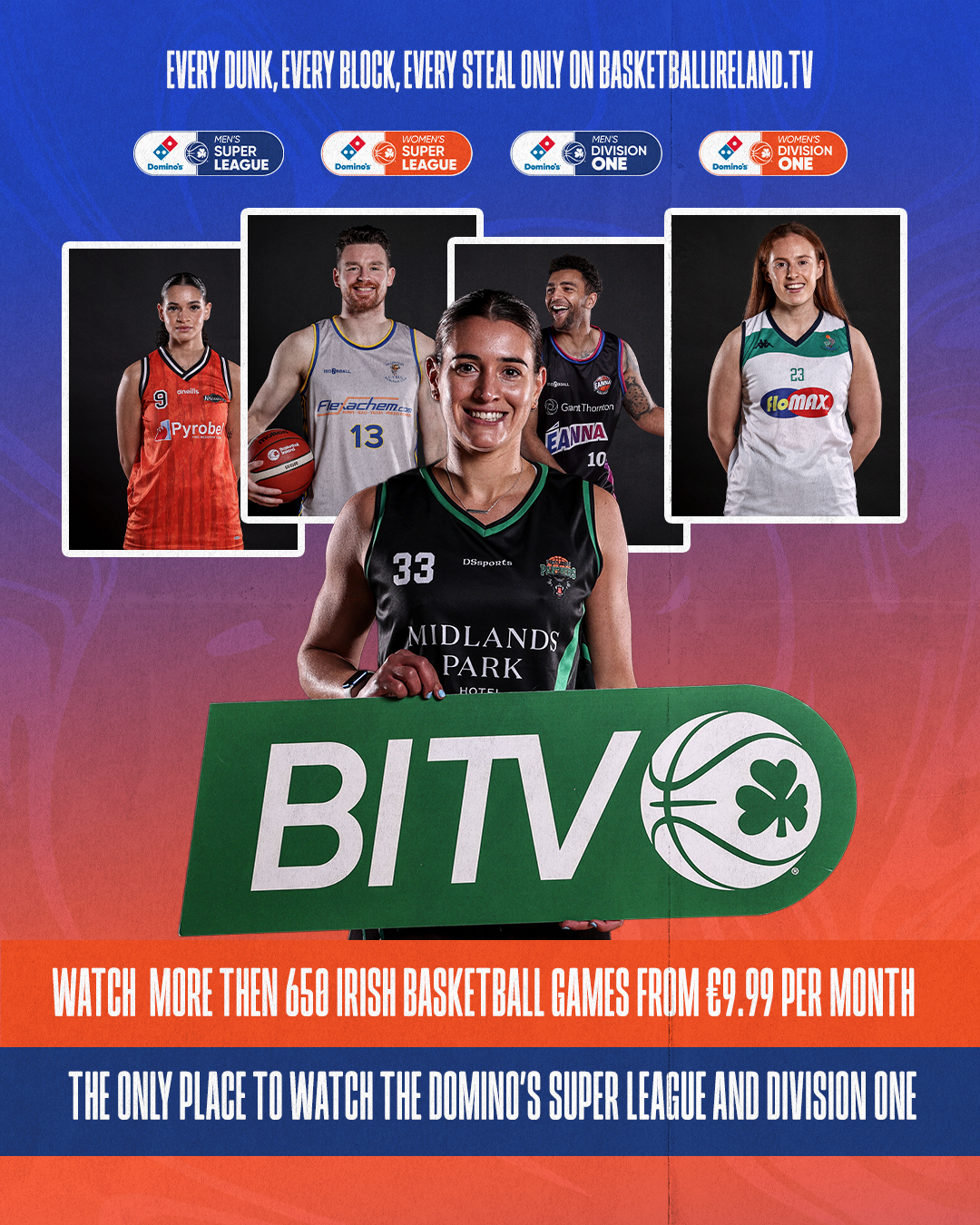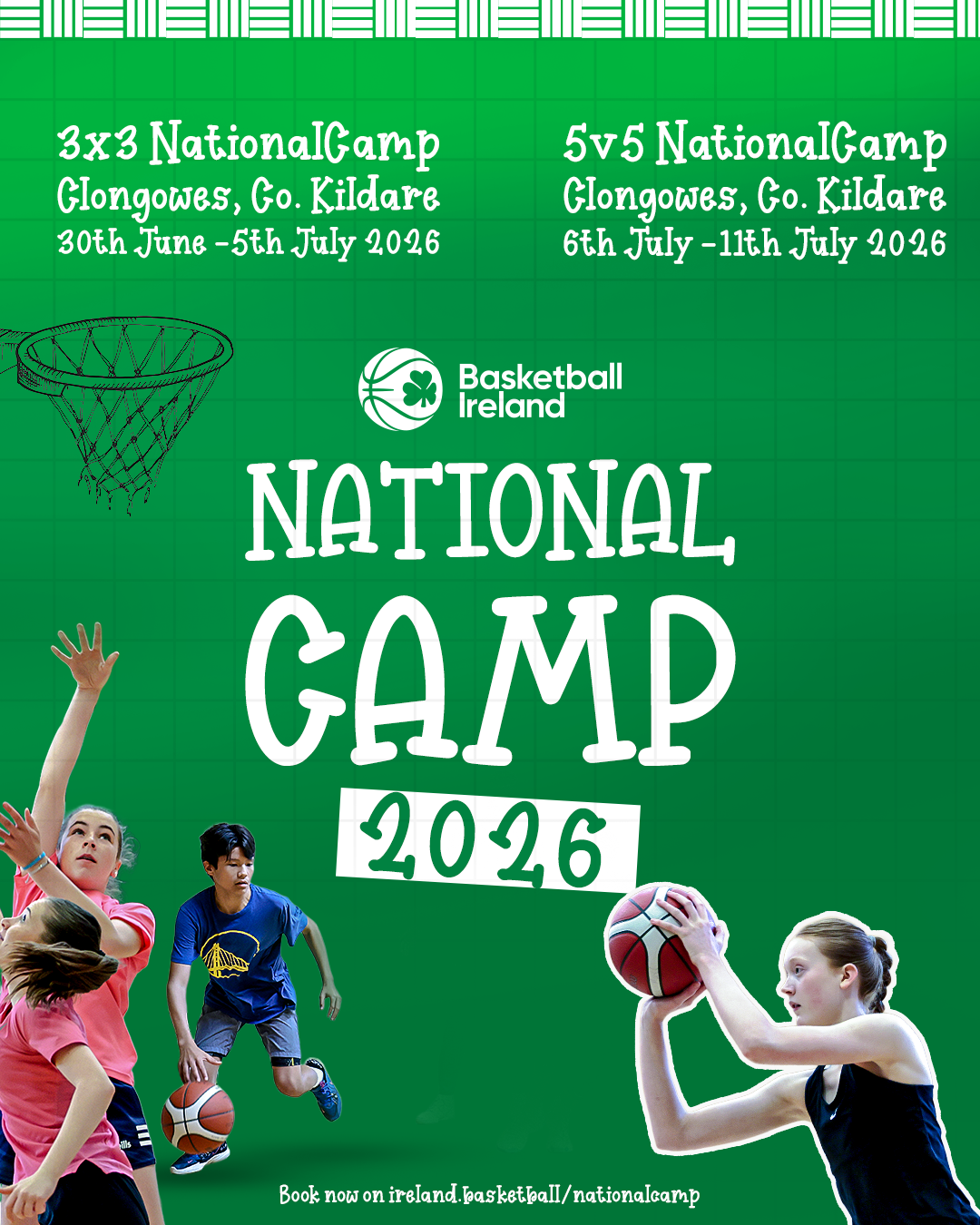Women in Sport
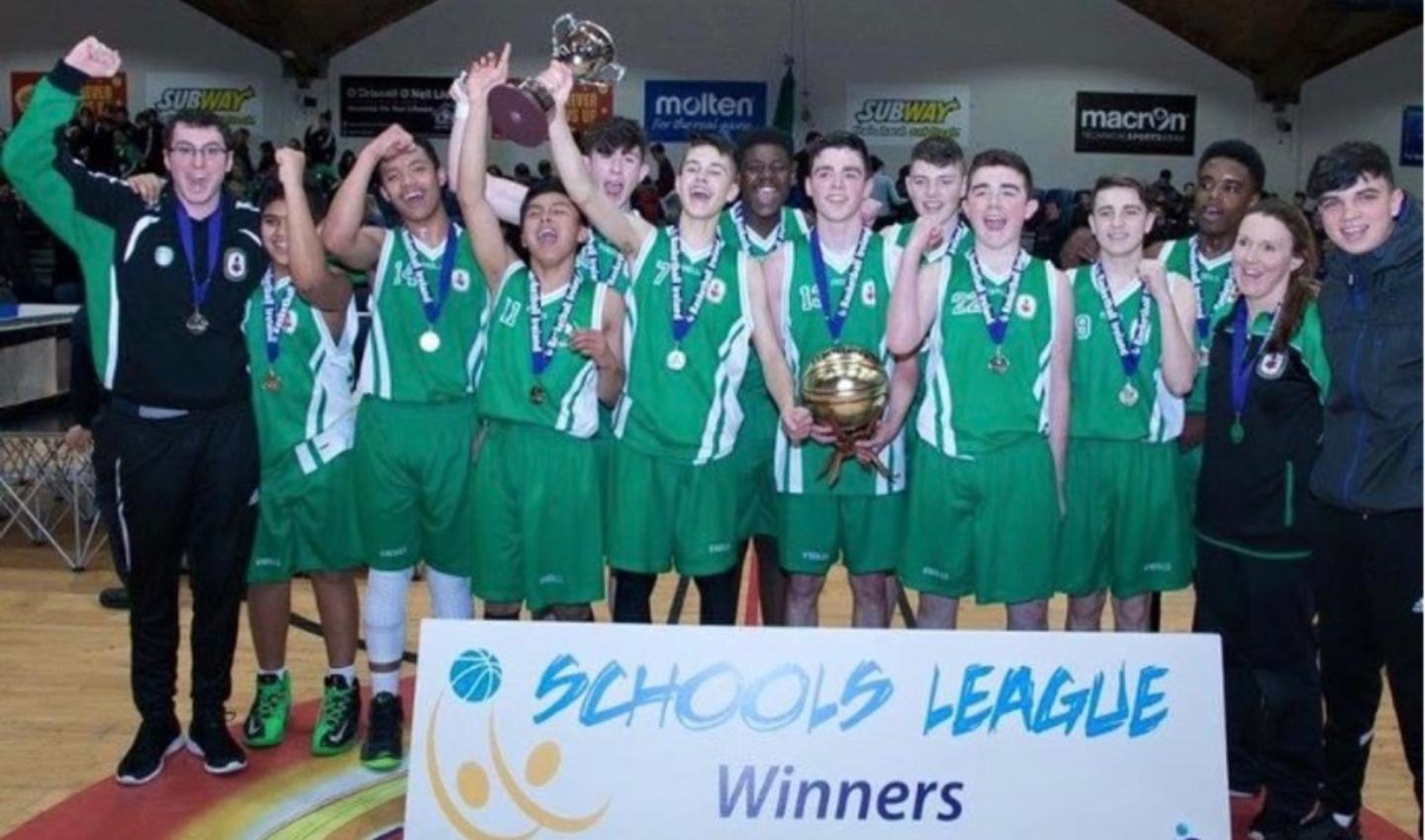
Focus on Women in Coaching: Jodie Furlong Noonan
This week’s feature is on Jodi Furlong Noonan
A recent survey by Basketball Ireland of female coaches in Ireland found that there were many up and coming young coaches who wanted to hear more from experienced female coaches in Ireland.
Over the coming weeks – and as part of our ‘Dream Big’ #SheGotGame women in sport campaign - we will be featuring a host of female coaches who are currently (or have recently been) coaching here in Ireland, to learn about their background, their coaching careers and any tips and tricks they have for new coaches.
This week’s feature is on Jodi Furlong Noonan, check out our Q&A with her below.
Q: Current coaching position:
"Head coach of the boys’ basketball programme in St. Aidan’s Community College, Cork and Academy Director at Neptune basketball club."
Q: Can you talk us through your playing background?
"I first played basketball with the local youth club in New Ross. I went on to play in secondary school and club basketball with New Ross Bullets. Unlike the other coaches that you have interviewed, I didn’t play basketball at a high level. I was a role player and was very average, but knew early on that I loved the game and that I wanted to coach and learn and progress in the sport that we all love as best I could."
Q: How did you get involved in coaching?
"I started coaching a junior girls team when I was in 5th year in secondary school. I then went on to coach underage basketball with New Ross Bullets, before moving to Wildcats when I started college in W.I.T. I was lucky enough to have Gerry Fitzpatrick as my sports psychology and performance analysis lecturer in college and by that stage I was hooked!"
Q: What kind of teams have you coached over the years?
"I have been fortunate enough to have coached lots of different teams in various competitions and age groups.
Schools: I have coached in five secondary schools over the years: Our Lady of Lourdes, New Ross; Sacred Heart, Clonakilty; Mercy Waterford; St. Angela’s College, Cork and St. Aidan’s Community College, Cork. We have won numerous regional titles in different grades and two All-Ireland titles. School’s basketball is very special. I love being part of the excitement, camaraderie and growth of a team from 1st to 6th year and seeing your players develop and mature both on and off the court, is extremely rewarding."
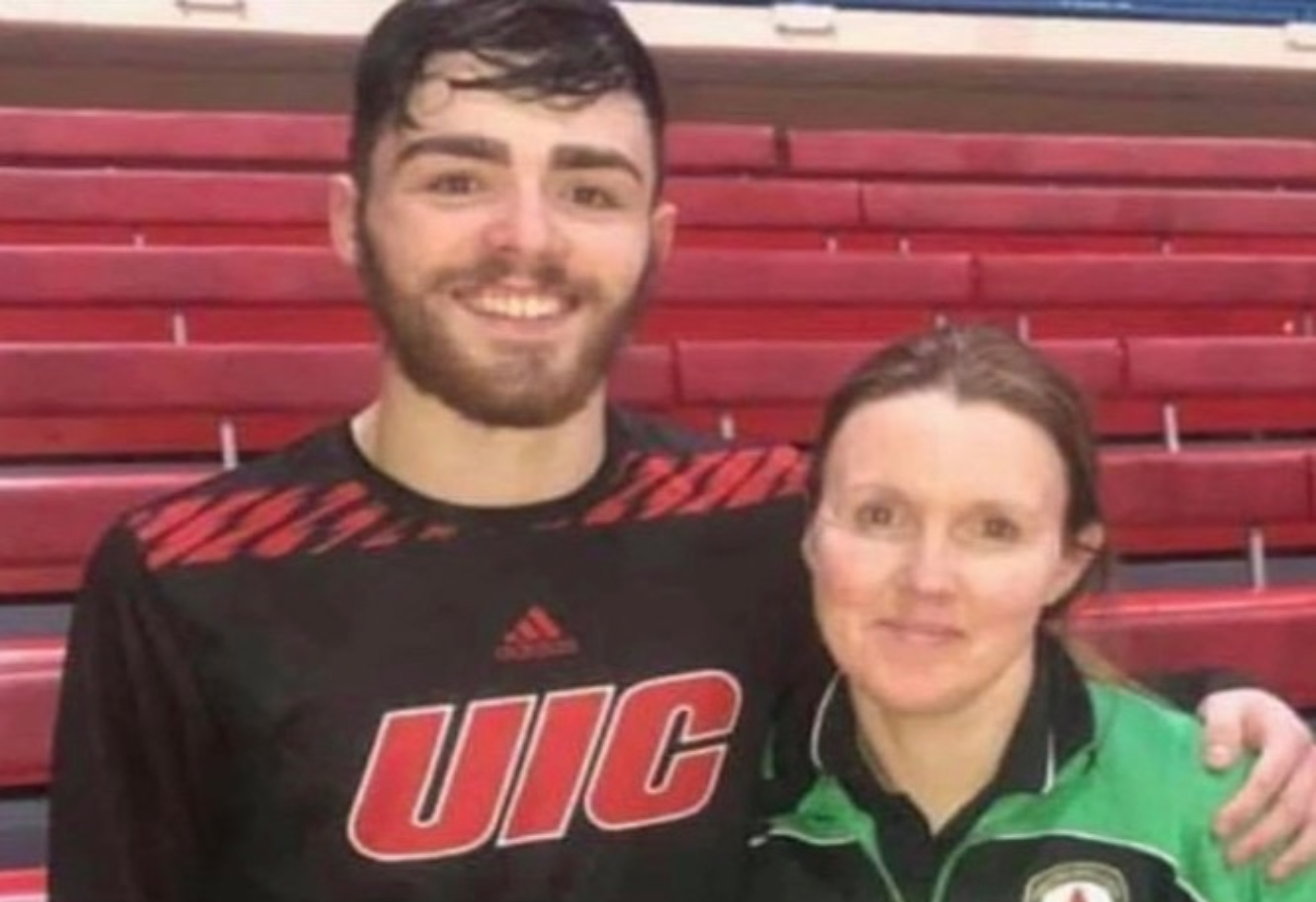
Regional: I was head coach of the south east U15 and Cork U15 girls Inter-Regional teams. Our Cork team won the Inter-Regionals in 2012. The Inter-Regional tournament is a great competition and I thoroughly enjoyed coaching in it, but it was the process of selecting a squad of players and working on their skill level over the summer and then moulding them into a team that I enjoyed the most. I have also coached Cork inter-area teams.
College: I had the pleasure of coaching UCC Women’s team for four years. During that timeframe we won two varsities and two leagues. College basketball is very different to school’s basketball, but just as rewarding. At this age, players are normally passionate and knowledgeable in the sport and a good percentage of them are often on scholarships, so the motivation levels are high. You also have the added advantage of having top class strength and conditioning facilities on campus, so as a coach you have the luxury of focusing solely on planning and running effective training sessions, building team chemistry and preparing for the college league and varsities.
Club: I started coaching club basketball with my local club New Ross Bullets. They were the first club to believe in me and give me the responsibility of taking my own underage team. Since then I have been fortunate enough to have coached underage basketball firstly with Waterford Wildcats and then with Glanmire. Both clubs have produced some incredible players over the years and I count myself very lucky to have had the opportunity to have worked with some of them. A highlight in Glanmire was winning the U16 All-Ireland with coach Joe O’Meara and winning the Cork league with Wildcats for the first time was also a special day. Wildcats basketball club in particular put so much time and effort into developing their coaches and I benefited hugely from this and always will be grateful. I also gained great Super League experience with Wildcats, when I served my time as assistant coach for three seasons. I am presently running the underage academy in Neptune with my husband Ger and even though it is very different, as the players are much younger, I’m enjoying it immensely especially since our children are academy members and Neptune is a great club to be involved with.
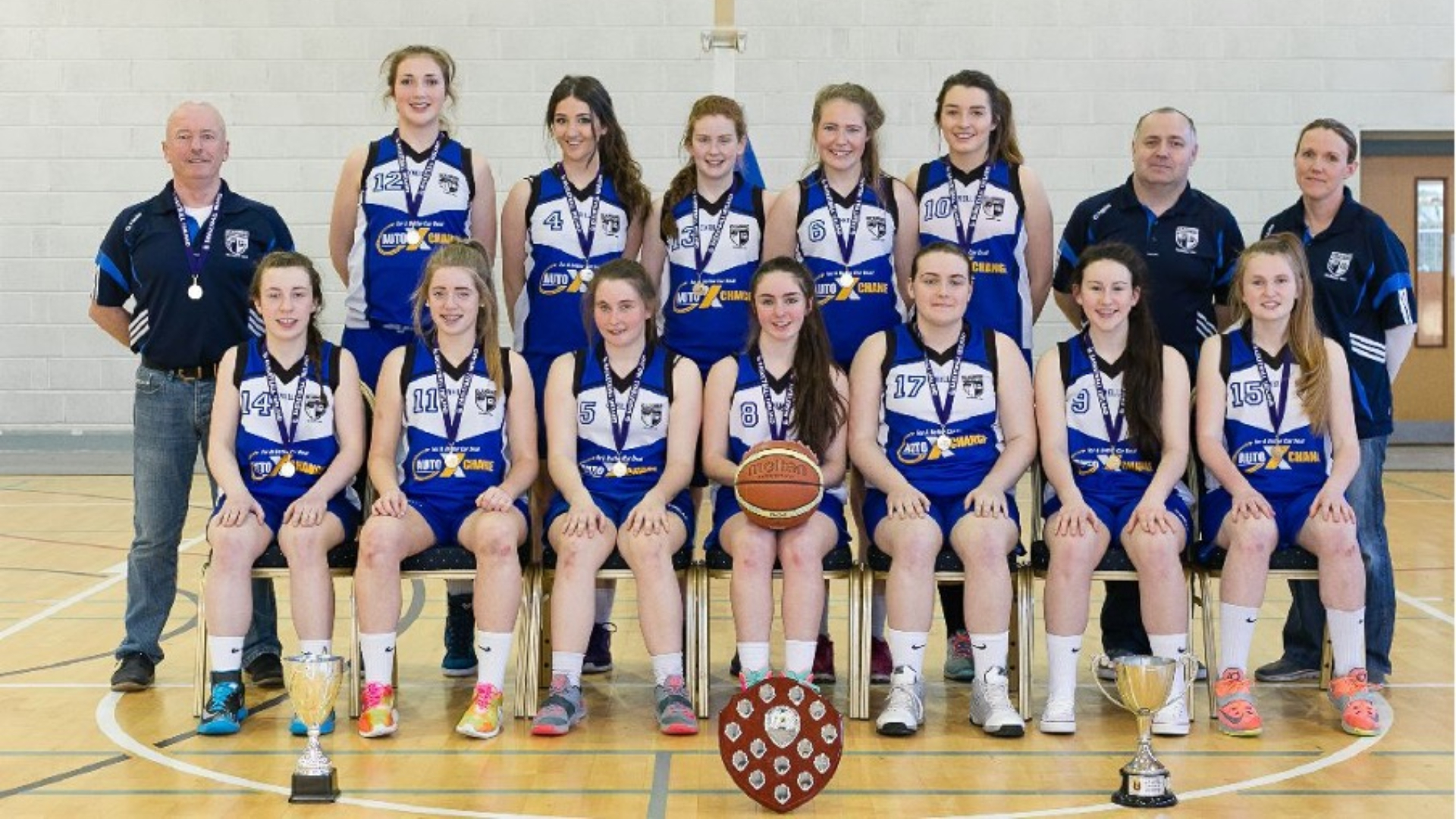
International: I have been an assistant coach for three U16 programmes, three U18 programmes and one senior women’s select team. Getting involved with an international programme as an assistant coach or team manager is the biggest learning opportunity there is. You are exposed to all aspects of the game: trials, squad/team selection, offensive and defensive philosophies, planning and running training sessions, skill development, strength and conditioning, nutrition, video analysis, scouting, statistics, programmes, team meetings et cetera. The attention to detail is second to none and the Europeans are as close to a professional set-up as you can get. Playing eight games in ten days is a tough, gruelling experience and a real rollercoaster of emotions for all involved, but so worth it. A standout moment was qualifying for a top 8 position in the U16B Europeans in Estonia when I was assistant coach to Joe Shields and the 1989 team."
Q: Who would you say was a role model for you as a coach and why?
"Trish Nolan is definitely someone I look up to. She coached our senior team in school and her people skills and organisation were excellent. She also was the first person to encourage me to get involved in coaching and brought me to see my first international game in Scotland. As well as being a great coach, she is a great person and has helped so many people in the basketball community.
When I started coaching with Wildcats, Steve Eberley became a very important mentor to me. He is a great teacher of the game and spend hours teaching myself and other Wildcats underage coaches the different aspects of the game.
Later when I got involved with Irish programmes, Des O’Sullivan, Ger Tryant and James Weldon all became coaches that I grew admiration for. Their planning and approach to the game was and still is meticulous and no stone is left unturned. They all run fantastic training sessions that ooze with intensity. I am also a big fan of the style of basketball they play and have tried to implement aspects of it with my own teams over the years."
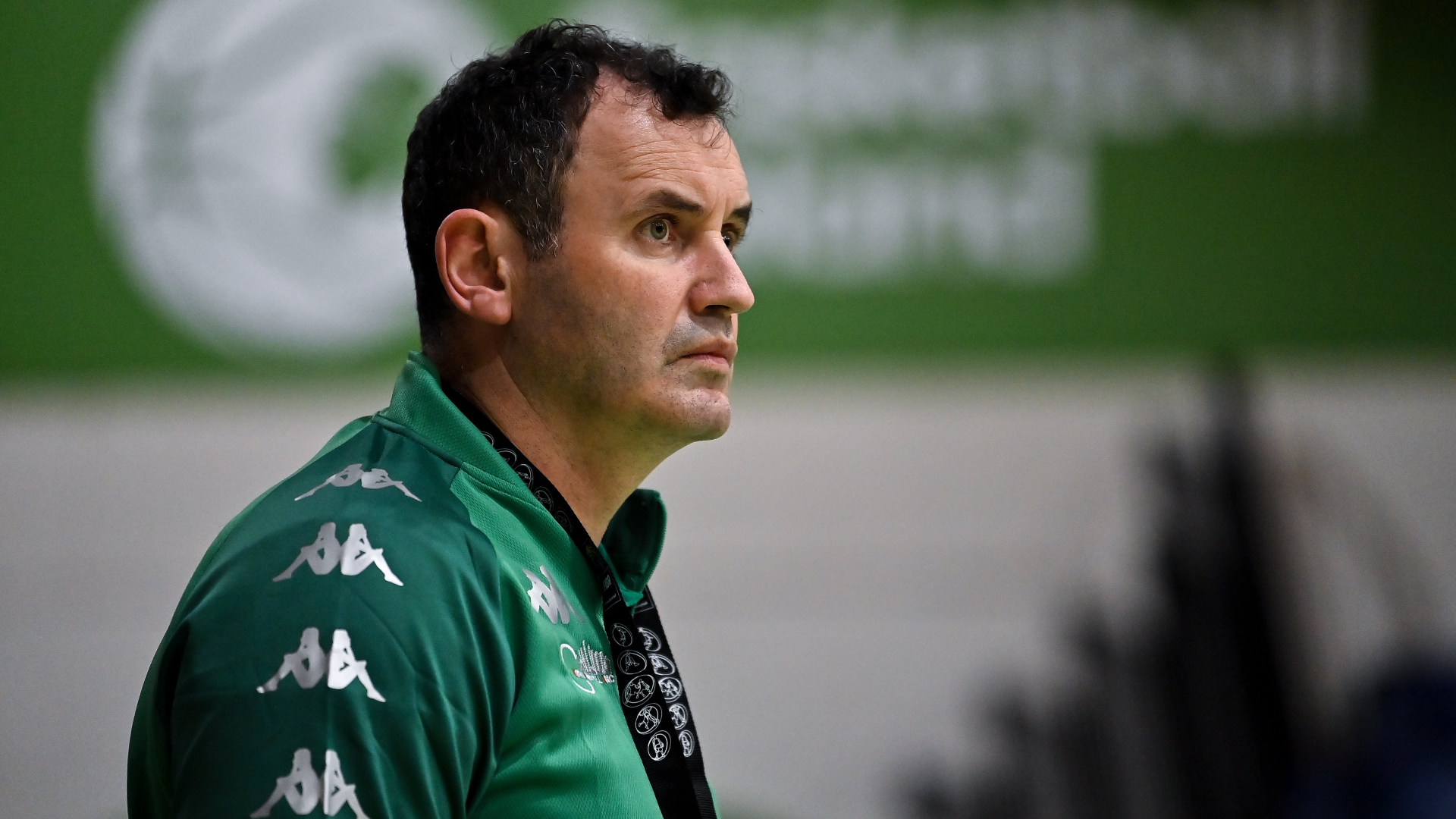
Ireland senior women's head coach James Weldon
Q: What is the most important thing for you when coaching younger/teenage boys and girls?
"As a coach you have got to know your players. Some players like to be challenged and held accountable and have no problem being corrected publicly, but others shy away and need constant encouragement and reassurance. Players respond in different ways and it’s our job as coaches to know how to push their buttons. As well as knowing how to motivate your players, it is also important to identify the players on your team discretely that may need extra support, because their home life’s may be more difficult. Transport, paying membership fees, access to training gear et cetera, may be more of an obstacle for certain players, so try and figure out a way to make it an equal playing ground for all your players."
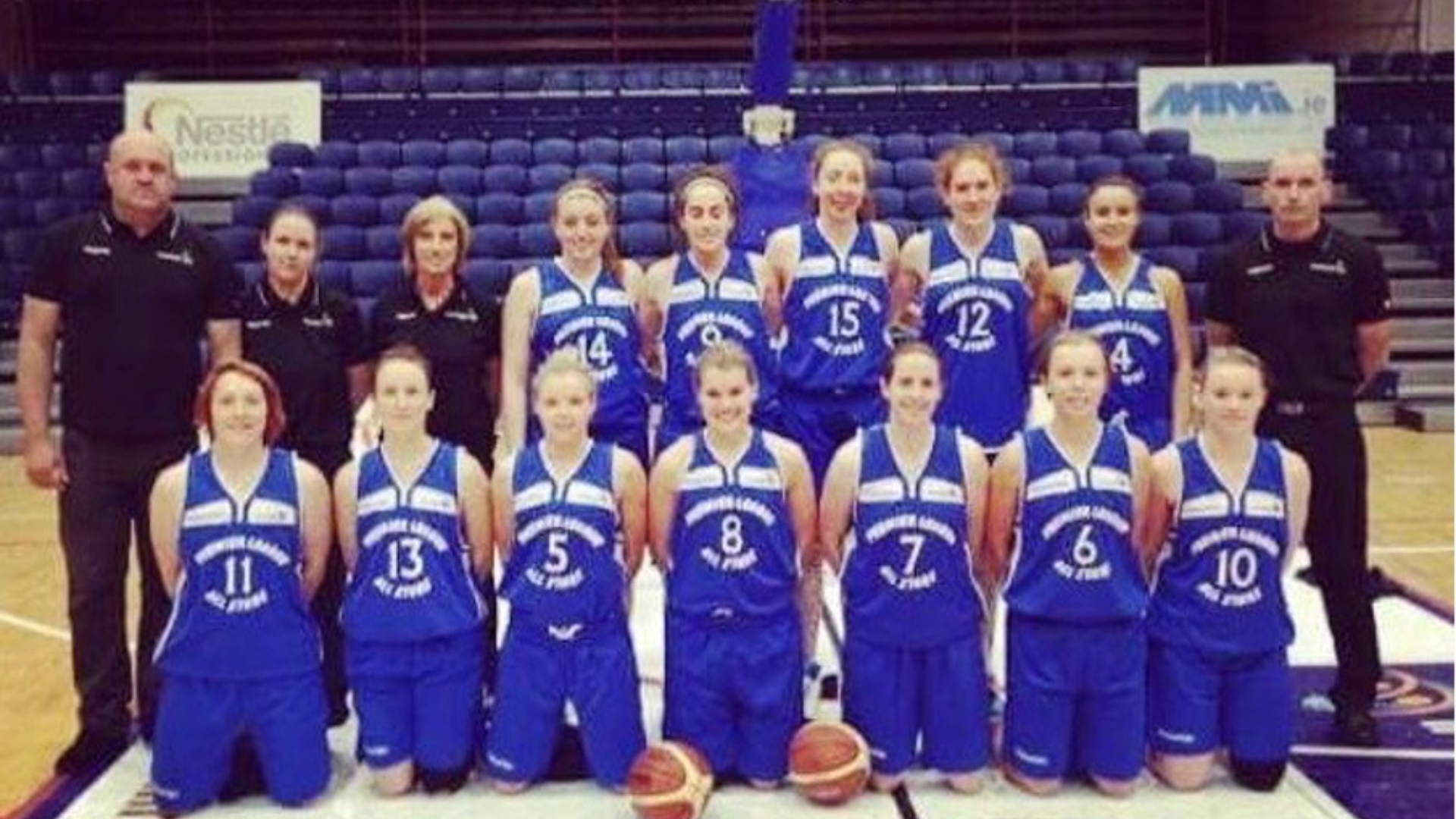
Q: Have you any tips you'd like to share on keeping girls engaged in sport - particularly at the 14-18 year old age group?
"Communicate with your players regularly. Let them know what is a realistic expectation for them and what their role is on the team and make them feel valued. Do not make false promises. Try and find a way to get all your players some sort of court time over the season. If this is not possible in their regular league, look at organising some challenge games, or see is it possible for your fringe players to play up a year on a B team etc. Planning, fundraising and looking forward to overnight trips away are also great ways of keeping players engaged."
Q: Do you have a favourite drill you use for younger players to keep them engaged in the training session and if so, what is it?
"We love the “3 player fly” and the “Turkey” drill in St. Aidan’s. Both are transition/fast break drills and we set time and score targets to make them as game realistic as we can."
Q: Any tips you would like to give to young coaches who are starting out?
"Plan, plan, plan and plan some more! The more prepared you are, the more confident you will be. Set three aims for each training sessions and have a written plan. Allocate a set time for each drill and targets, if relevant. Use break down drills to teach your offences and defences. Add defence in to as many of your drills as possible, to keep them game-like. Written plans are a good idea for games as well. If possible have your match-ups and rotations prepared in advance and know what defence and offence you are going to go to first. Give your team two or three simple goals in each game e.g. 'We are going to out rebound them or limit the amount of points we give up on the break'."
Q: When you first stepped up to National League/International level, were you nervous about the step up and how did you deal with that if so?
"Yes, I was nervous, but nerves are a good thing. They are a sign that you respect your audience and care deeply about your work. I dealt with this by knowing in advance what my role and responsibilities were and what the head coaches’ expectations were for me and I made sure I was prepared."
Q: What would you say to other female coaches who are considering moving up a level in their coaching careers?
"Get the experience that you need first and then go for it! We have a fabulous basketball community in Ireland and there are lots of coaches out there that will help you progress, by sharing their knowledge with you and taking you under their wing. Ask a more senior coach if you can attend their training sessions, or offer to take statistics for them in games, so you get as much as exposure to their coaching as possible, so you can learn. Attend as many coaching courses as you can and tap in to the excellent resources available online. Coaching at camps are also another great way of picking up tips from more experienced coaches."
Q: How do you measure the success of a training session?
"I refer back to the three aims I set for the training session and see did we achieve them. The intensity of the training session and the engagement of the players are also big factors for me. I want them to be challenged and to enjoy working hard to achieve the targets we set. The atmosphere at the session is also an indicator of its success. It needs to be competitive but always with a good team spirit. "
Q: How do you measure success in broader terms?
"Measuring success very much depends on the type of team you are coaching, as the emphasis and focus will vary depending on their age group etc. We try to set three team goals as a team at the start of the season and we reflect back at the end of the season, to see did we achieve them. I also think it is very important that players set individual goals for self-motivation and to measure their own success, e.g. develop an outside shot, or make a regional or national team et cetera. I love seeing players achieve their individual goals and seeing all their hard work paying off especially when it comes to being selected for a regional or national team. When that happens it is a proud day for their family, school and club and certainly an achievement to be celebrated!"
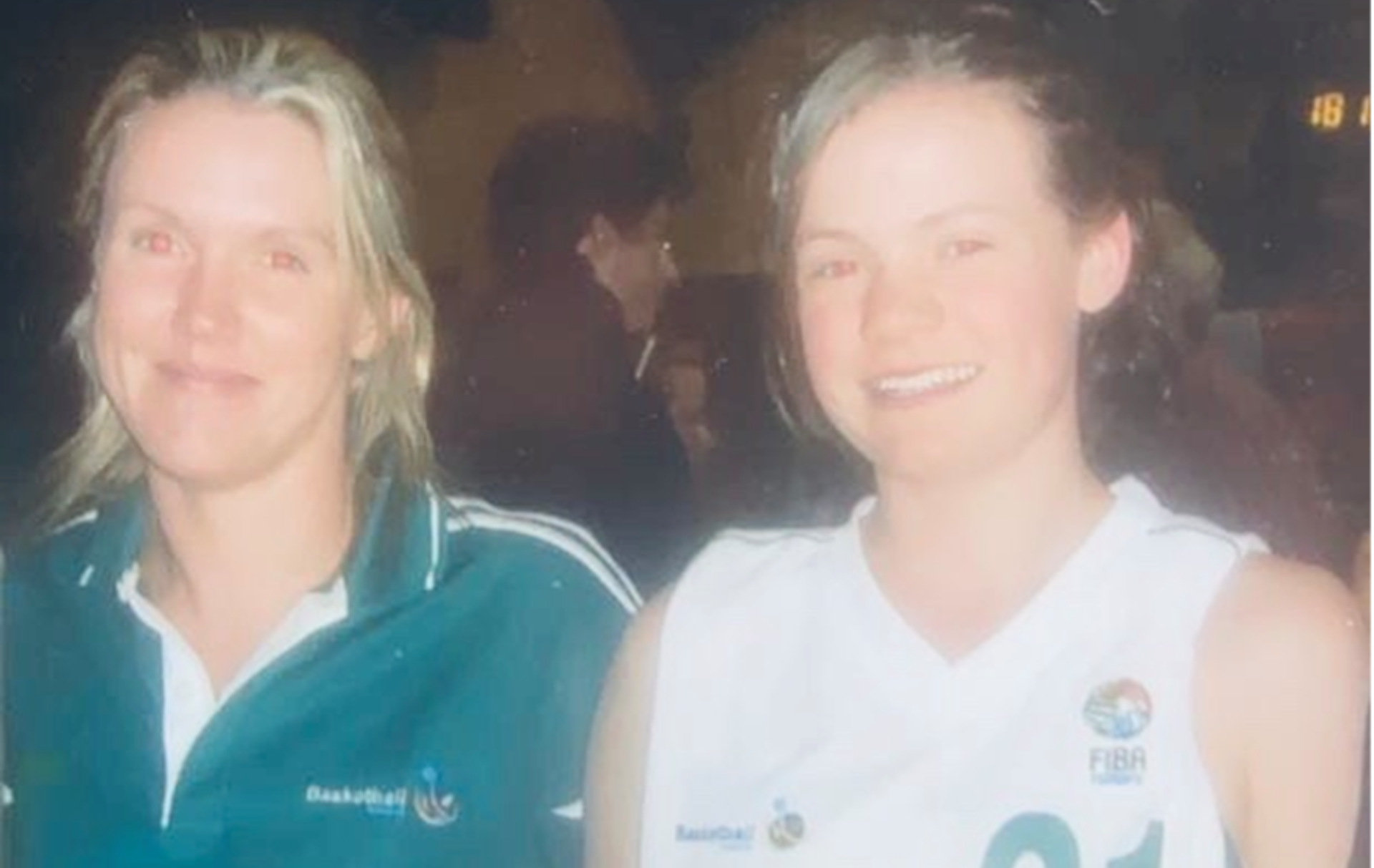
Q: How important do you think it is for coaches to keep learning and developing regardless of level of experience?
"Extremely important as the game is constantly changing. However, it can be difficult to balance work, family life and basketball and also make time to upskill so find a way to learn that works for you. Since starting my family, I definitely have had less time to attend coaching courses so I try to learn from the coaches and players that I am around at training sessions etc. This season I have picked up some new fun drills from one of our academy coaches Ronan O’Sullivan and I have picked up lots of new competitive drills and concepts from watching video clips of Paul Kelleher’s U14 training sessions in Neptune. We are also learning from one of our former players Jordan Blount who has developed some excellent individual skill and strength and conditioning workouts."
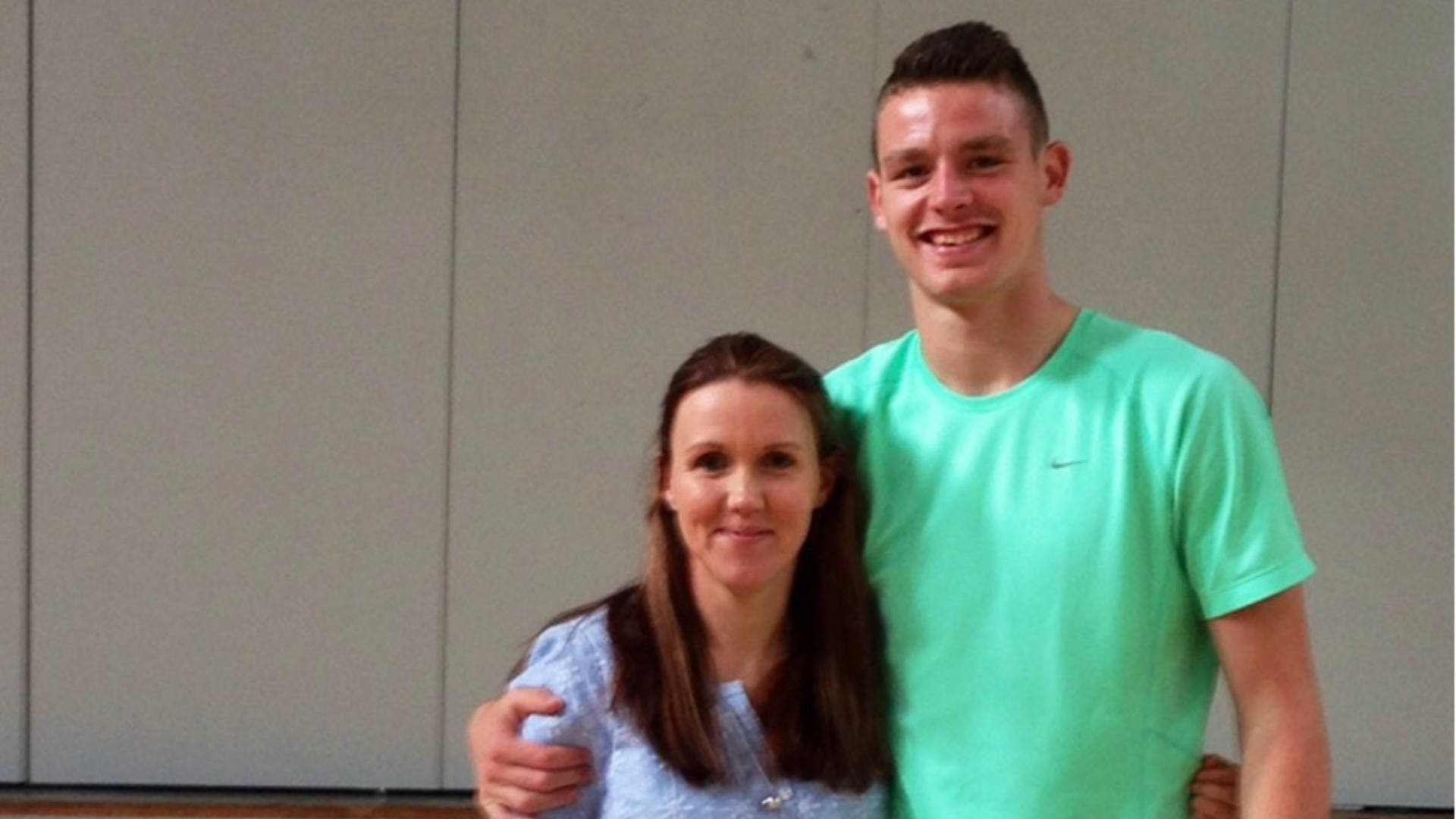
Jodie Furlong Noonan and Jordan Blount
Q: Have you noticed many changes in Ireland in coaching over the years? If so, what?
"There has definitely been a huge increase in access to high quality online coaching material and clinics, which is extremely helpful for busy coaches. I also think there is more of an emphasis on teaching player’s principals and how to make good decisions instead of being over reliant on half court offences."
Q: What changes would you like to see in basketball coaching in Ireland in the future?
"I would love to see more of an emphasis on developing athleticism, especially with younger players. It would be great if we could start building more simple fundamental movement drills into our training sessions and that it was the norm to give our older players strength and conditioning work outs to do on their own. I also think our players don’t play enough outside of their regular training sessions and games and camps in the summer time, especially in comparison to other countries. Getting access to a gym can be a big issue for Irish players. A few schools and clubs have come up with some creative solutions to this for example Fr. Mathews run a summer league in Cork which is open to male and female players from any club and it works well. A few secondary schools open their court before school starts for “breakfast basketball” and players get the opportunity to shoot or scrimmage on a daily basis. I would love to see more of this."
Q: What is the most valuable lesson you have learned as a coach?
"I definitely have learned more than one lesson as a coach! I have picked up lots of little nuggets from other coaches, or from experiences. For example, don’t be over reliant on half court offences, Brunell certainly taught me that when coaching against them in the Cork U16 league! Rotating players early in a game is easier than trying to get players into a tight 4th quarter et cetera. However, I think the biggest thing that I have learned is that coaching is all about building relationships and that you can have all the desire and basketball knowledge in the world, but if you can’t relate to your players it is pointless. I have been blessed with the players I have got to coach and the coaches I have got to work with over the years and to me that makes it all worthwhile."
